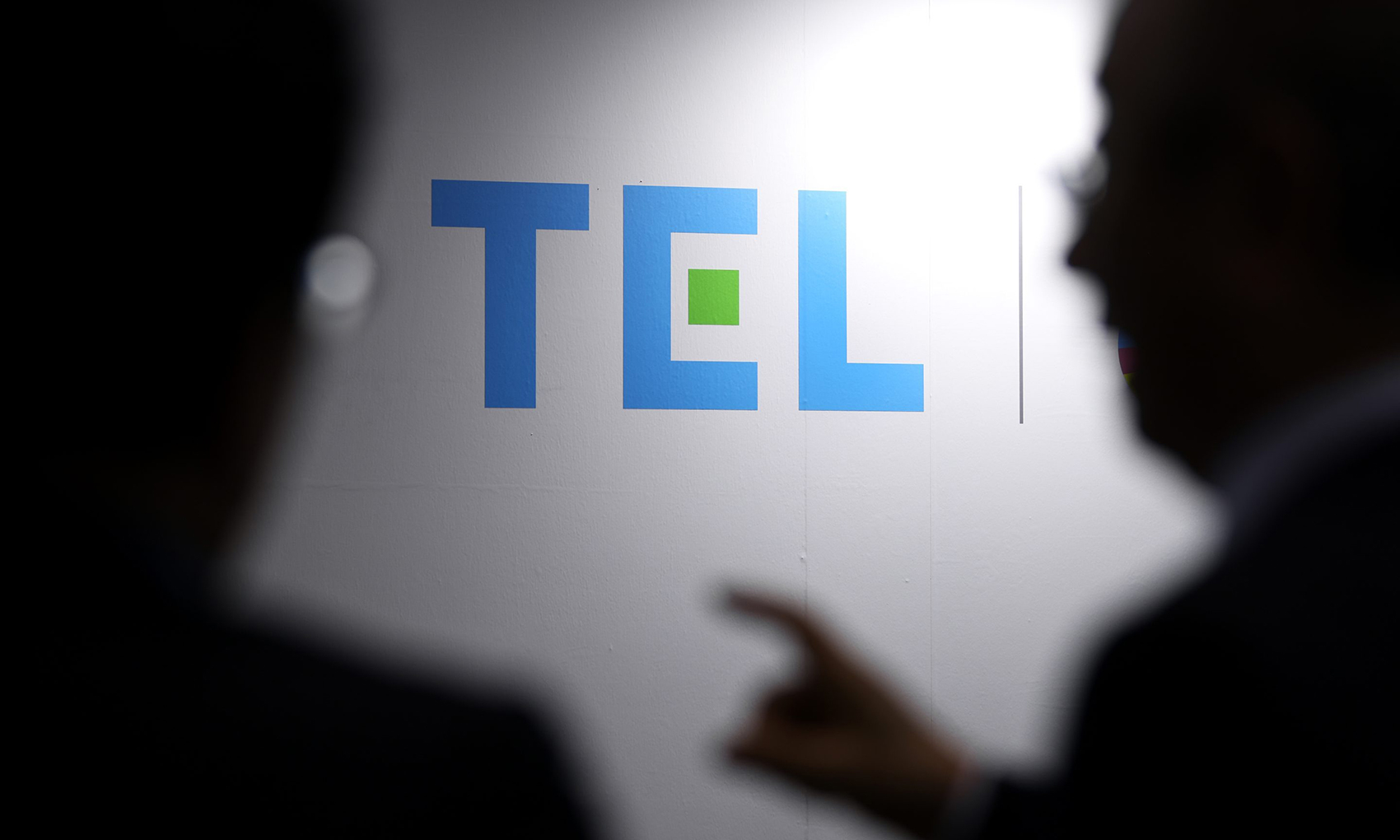
美国总统乔·拜登(Joe Biden)可能会禁止日本公司对华出口高端芯片生产设备,但日本公司仍能从低端芯片生产设备出口中赚得盆满钵满。
亚洲最大的半导体设备制造商之一东京电子发现,由于中国对不太先进制程的设备的需求激增,美国和日本对华尖端芯片和芯片制造设备出口管制措施的影响比预期的要小。该公司投资者关系主管高木润子(Junko Takagi)对英国《金融时报》(Financial Times)表示,中国市场创造的营收占东京电子今年第三季度公司总营收的43%,高于去年同期的24%。
另一家日本半导体设备制造商国际电气(Kokusai Electric Corp.)也在扩大在华业务,以应对预期中的需求增长。该公司首席执行官金井文幸 (Fumiyuki Kanai)在接受彭博社采访时预测,中国市场很快将占该公司收入的近50%,高于之前的40%比例以上,也高于30%的历史水平。金井文幸希望投资于存储、逻辑和功率芯片,工艺制程集中在28纳米及以上。
金井文幸表示:“在中国,无数小型晶圆厂如雨后春笋般涌现。”
虽然日本的芯片制造落后于台湾和韩国等竞争对手几十年,但该国仍是芯片制造设备的主要生产国。这些设备使台湾半导体制造公司或三星(Samsung)等公司能够生产出为我们的电子设备提供动力的微型半导体。
今年早些时候,日本和另一大芯片制造设备的主要生产国荷兰同意与美国一道,实施对华尖端芯片制造设备出口管制。
在美国对更先进的半导体施加压力之际,中国一直在投资所谓的传统芯片。许多设备使用大于28纳米工艺制程的成熟芯片,而高端消费电子产品和数据中心则依赖于台积电(TSMC)、英特尔(Intel)和三星(Samsung)等公司生产的尖端芯片。据咨询公司International Business Strategies估计,到2030年,28纳米工艺制程的芯片的市场价值将达到280亿美元。
中国企业可能还在使用老式芯片制造设备秘密制造更先进的半导体。今年8月,华为(Huawei)推出了搭载中国制造的先进处理器的新款5G手机Mate 60 Pro,令美国措手不及。专家认为,华为及其供应商中芯国际集成电路制造有限公司(SMIC)可能已经能够使用老一代设备制造先进芯片,但不确定中国公司是否能以合理的成本大规模制造这种芯片。
华为取得的成就正促使美国议员呼吁实施更严格的出口管制措施。众议院中国事务特别委员会联合主席迈克·加拉格尔(Mike Gallagher)(共和党-威斯康星州)在9月份提议美国禁止对华为和中芯国际的所有技术出口。其他政界人士和智库也提议将芯片管制扩大到老式芯片和设备。(拜登政府在10月份扩大了芯片出口管制范围,涵盖了用于人工智能研发的更先进的半导体)。
尽管如此,在10月中旬,拜登政府还是允许台积电、三星和韩国公司SK海力士(SK Hynix)继续无限期地向其中国芯片工厂供应传统设备。当时,分析人士告诉《财富》杂志,美国可能希望在中国芯片行业保留一些外国业务;如果外国公司离开,需求将转向中国本土公司,从而导致美国的“控制力和受关注度降低”。(财富中文网)
译者:中慧言-王芳
美国总统乔·拜登(Joe Biden)可能会禁止日本公司对华出口高端芯片生产设备,但日本公司仍能从低端芯片生产设备出口中赚得盆满钵满。
亚洲最大的半导体设备制造商之一东京电子发现,由于中国对不太先进制程的设备的需求激增,美国和日本对华尖端芯片和芯片制造设备出口管制措施的影响比预期的要小。该公司投资者关系主管高木润子(Junko Takagi)对英国《金融时报》(Financial Times)表示,中国市场创造的营收占东京电子今年第三季度公司总营收的43%,高于去年同期的24%。
另一家日本半导体设备制造商国际电气(Kokusai Electric Corp.)也在扩大在华业务,以应对预期中的需求增长。该公司首席执行官金井文幸 (Fumiyuki Kanai)在接受彭博社采访时预测,中国市场很快将占该公司收入的近50%,高于之前的40%比例以上,也高于30%的历史水平。金井文幸希望投资于存储、逻辑和功率芯片,工艺制程集中在28纳米及以上。
金井文幸表示:“在中国,无数小型晶圆厂如雨后春笋般涌现。”
虽然日本的芯片制造落后于台湾和韩国等竞争对手几十年,但该国仍是芯片制造设备的主要生产国。这些设备使台湾半导体制造公司或三星(Samsung)等公司能够生产出为我们的电子设备提供动力的微型半导体。
今年早些时候,日本和另一大芯片制造设备的主要生产国荷兰同意与美国一道,实施对华尖端芯片制造设备出口管制。
在美国对更先进的半导体施加压力之际,中国一直在投资所谓的传统芯片。许多设备使用大于28纳米工艺制程的成熟芯片,而高端消费电子产品和数据中心则依赖于台积电(TSMC)、英特尔(Intel)和三星(Samsung)等公司生产的尖端芯片。据咨询公司International Business Strategies估计,到2030年,28纳米工艺制程的芯片的市场价值将达到280亿美元。
中国企业可能还在使用老式芯片制造设备秘密制造更先进的半导体。今年8月,华为(Huawei)推出了搭载中国制造的先进处理器的新款5G手机Mate 60 Pro,令美国措手不及。专家认为,华为及其供应商中芯国际集成电路制造有限公司(SMIC)可能已经能够使用老一代设备制造先进芯片,但不确定中国公司是否能以合理的成本大规模制造这种芯片。
华为取得的成就正促使美国议员呼吁实施更严格的出口管制措施。众议院中国事务特别委员会联合主席迈克·加拉格尔(Mike Gallagher)(共和党-威斯康星州)在9月份提议美国禁止对华为和中芯国际的所有技术出口。其他政界人士和智库也提议将芯片管制扩大到老式芯片和设备。(拜登政府在10月份扩大了芯片出口管制范围,涵盖了用于人工智能研发的更先进的半导体)。
尽管如此,在10月中旬,拜登政府还是允许台积电、三星和韩国公司SK海力士(SK Hynix)继续无限期地向其中国芯片工厂供应传统设备。当时,分析人士告诉《财富》杂志,美国可能希望在中国芯片行业保留一些外国业务;如果外国公司离开,需求将转向中国本土公司,从而导致美国的“控制力和受关注度降低”。(财富中文网)
译者:中慧言-王芳
U.S. President Joe Biden may be stopping Japanese companies from selling high-end chipmaking equipment to China, but there’s still a lot of money to be made on the low-end.
Tokyo Electron, one of Asia’s largest makers of semiconductor equipment, is finding the effect of American and Japanese controls, which bar the sales of cutting-edge chips and chipmaking equipment to China, to be smaller than expected, thanks to surging Chinese demand for less advanced machinery. The company generated 43% of its sales from China last quarter, up from 24% a year ago, head of investor relations Junko Takagi told the Financial Times.
Kokusai Electric Corp., another Japanese equipment maker, is also expanding its presence in China to match an expected increase in demand. China could soon make up just under 50% of the company’s revenue, up from over 40% and above the historical level of 30%, CEO Fumiyuki Kanai forecast in an interview with Bloomberg. Kanai expects investments across memory, logic, and power chips at 28-nanometers and larger.
“Countless small-scale fabrication plants are springing up like mushrooms in China,” Kanai said.
While Japan’s chip manufacturing is decades behind its competitors like Taiwan and South Korea, the country is still a major producer of the machinery used to make the chips themselves. This equipment enables companies like Taiwan Semiconductor Manufacturing Company or Samsung to make the tiny semiconductors that power our electronic devices.
Earlier this year, Japan and the Netherlands, another major producer of chipmaking equipment, agreed to join the U.S. in limiting sales of cutting-edge chipmaking equipment to China.
China has been investing in so-called legacy chips as the U.S. puts the screws on more advanced semiconductors. Many devices use mature chips larger than 28 nanometers, while high-end consumer electronics and data centers rely on the cutting-edge chips made by companies like TSMC, Intel and Samsung. The market for 28-nanometer chips will be worth $28 billion by 2030, estimates consulting firm International Business Strategies.
Chinese companies may also be using older chipmaking equipment to secretly make more advanced semiconductors. Huawei blindsided Washington in August by unveiling its new 5G phone, the Mate 60 Pro, that featured an advanced Chinese-made processor. Experts believe that Huawei and its supplier, Semiconductor Manufacturing International Corporation (SMIC), may have been able to use older-generation equipment to make the advanced chip, though are unsure whether the Chinese firms can make them at scale and at reasonable cost.
Huawei’s achievement is now pushing U.S. lawmakers to call for even stricter export controls. Representative Mike Gallagher (R-Wis.), co-chair of the House Select Committee on China, suggested in September that the U.S. block all technology exports to Huawei and SMIC. Other politicians and think tanks have proposed extending chip controls to older chips and equipment as well. (The Biden administration expanded its chip controls to cover more advanced semiconductors used for AI development in October)
Still, in mid-October, the Biden administration allowed TSMC, Samsung and Korean firm SK Hynix to keep supplying legacy equipment to their Chinese chip plants indefinitely. At the time, analysts told Fortune that Washington may want to keep some foreign presence in China’s chip industry; if foreign companies left, demand would shift to local Chinese companies, leading to “less control and visibility” for the U.S.






